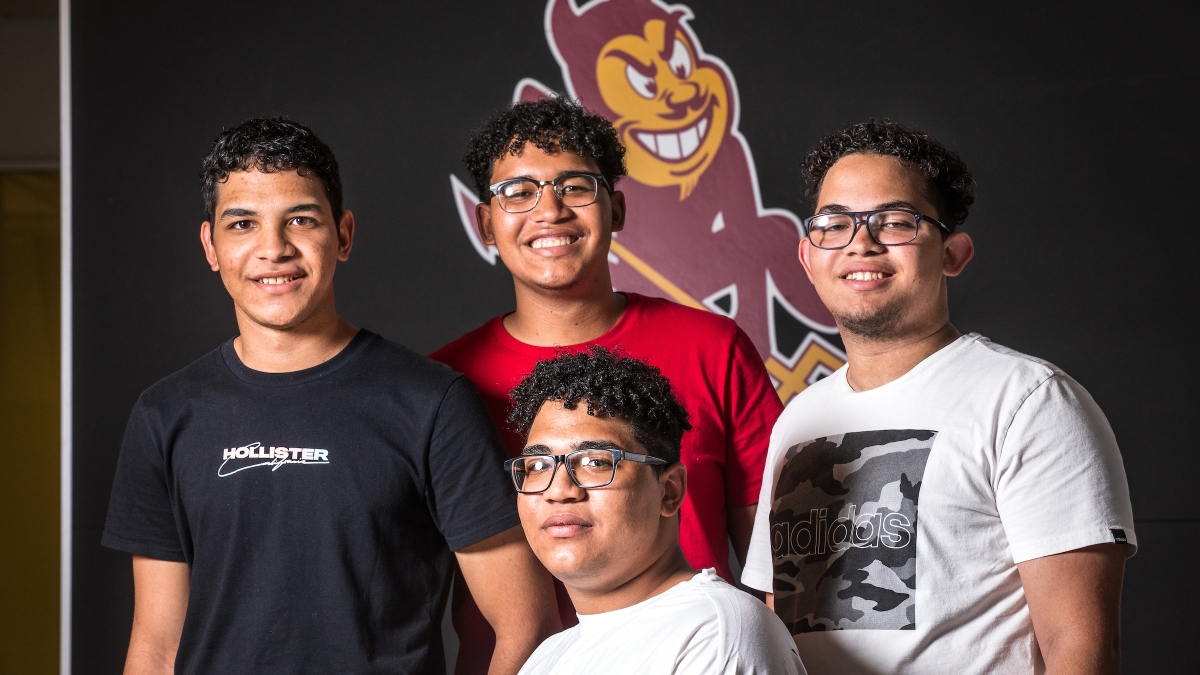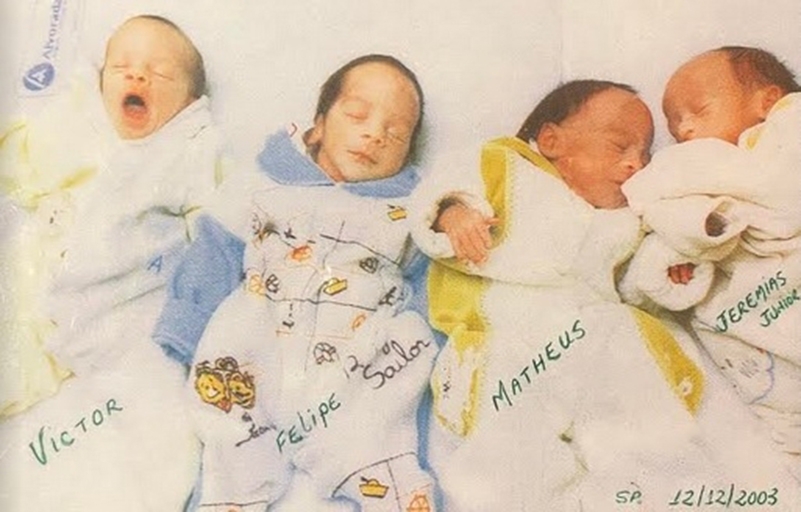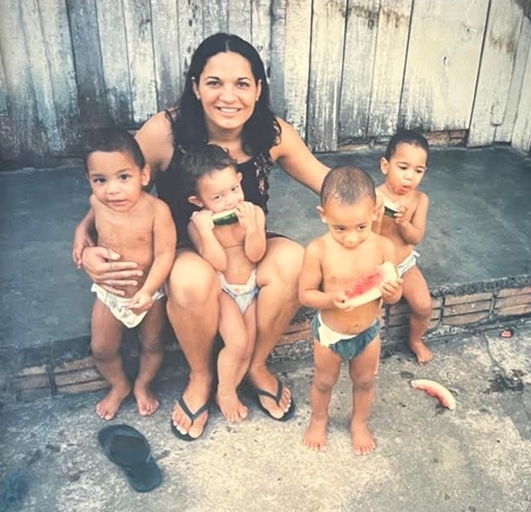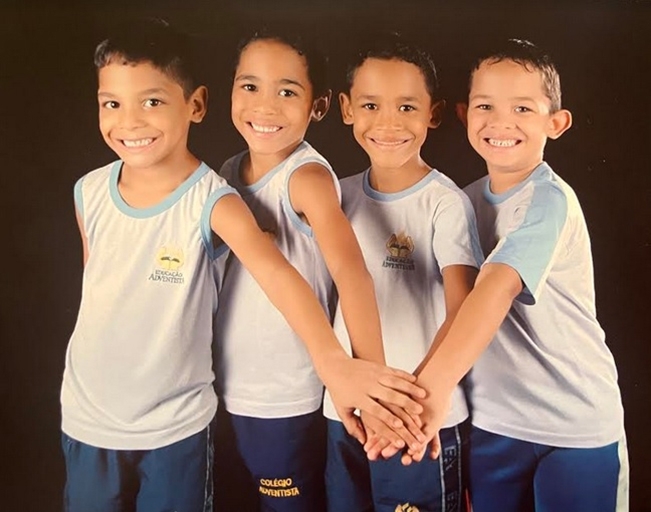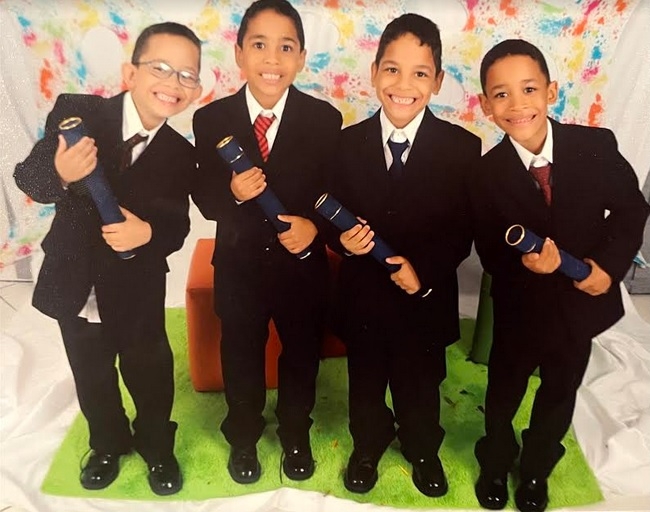If three is a crowd, four is likely to be a bit overwhelming at times. Fraternal quadruplets Felipe, Jeremias, Matheus and Victor de Castro Lopes Francisco would probably agree. Growing up, the brothers had their share of sibling squabbles — on and off the soccer field.
But when they made the move from their native country of Brazil to Chandler, Arizona, at the age of 13, they felt lucky to have each other. Whether they were missing friends and family back home or struggling to adapt to their new surroundings — which also meant mastering a new language fast enough to keep up at school — they knew they could lean on one another.
This fall, that will still be true when all four embark on the next chapter of their academic journeys at Arizona State University. Jeremias, Matheus and Victor are all direct admits to the Edson College of Nursing and Health Innovation, and Felipe will be pursuing a degree in civil engineering at the Ira A. Fulton Schools of Engineering.
“Since I was a child, I have always been fascinated with different buildings, roads and architecture,” Felipe said about his decision to be the odd one out. All of them, though, are looking forward to meeting new people, making friends and enjoying all that the college experience has to offer.
“Our cousin went to ASU and she loved it,” Victor said. “She told us about it so we wanted to learn more, and we really like everything about it: the campus, the programs and the diversity of people.”
“It’s also close to home and it is one of the greatest universities for preparing students for employment,” Matheus added.
As children in São Paulo, the brothers sometimes fought over shared birthday gifts or bristled at being mistaken for one another. But over the years, they learned to value their unique closeness, even when they had disagreements.
“Sometimes we fight, like any other siblings, but we got along pretty well,” Jeremias said. “Our fights are more like discussions.”
When the quadruplets moved to Arizona in December 2016, they spoke only Portuguese. Once they enrolled in Chandler High School, the race was on to learn English. It’s fair to say they succeeded, and with flying colors: Both Felipe and Matheus participated in the National Honor Society and all four rarely received anything but A's, a feat that was rewarded when each received a New American University Scholarship to attend ASU.
As first-generation college students, it’s not something they take lightly.
“My parents were very happy that we got into ASU because they always wanted us to pursue college,” Felipe said. “They were thrilled to hear that all of us got into ASU.”
While Felipe will be spending most of his time on ASU’s Tempe campus, studying to fulfill his dream of one day contributing to a stronger, more innovative American infrastructure, Victor, Matheus and Jeremias will be putting their noses to the grindstone at the Downtown Phoenix campus, indulging their shared desire to help people by pursuing careers in the health care field — and engaging in a little friendly competition every now and then.
“We brothers are always striving to outperform one another to be the best,” Matheus said. “But it’s enjoyable because we have each other’s backs and support one another’s decisions.”
Top photo: The de Castro Lopes Francisco quadruplets, (left to right) Felipe, Jeremias, Matheus and (seated) Victor. Photo by Charlie Leight/ASU News
More Science and technology

Compact X-ray laser lab aims to reveal deep secrets of life, matter and energy
X-rays allow us to view inside the human body to diagnose broken bones and other hidden problems. More recent X-ray advances are making it possible to see events at the scale of atoms and molecules,…

Apollo lunar samples enable ASU researcher to pinpoint moon’s crystallization timeline
A team of researchers, including Arizona State University geochemist Melanie Barboni, in collaboration with scientists from The University of Chicago, have made a new discovery about the history of…

NASA launches space telescope to chart the sky and millions of galaxies
California’s Vandenberg Space Force Base was the site for Tuesday’s 8:10 p.m. launch of the NASA SPHEREx mission aboard a SpaceX Falcon 9 rocket.The SPHEREx (Spectro-Photometer for the History of the…


